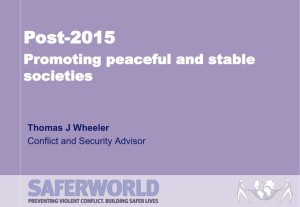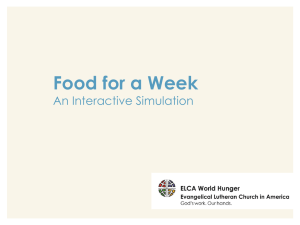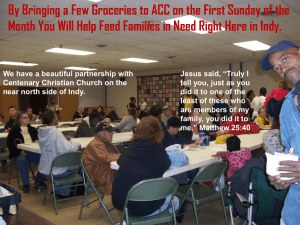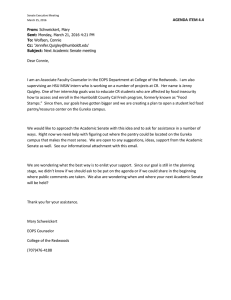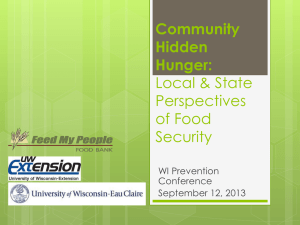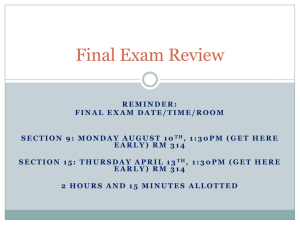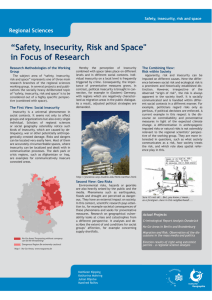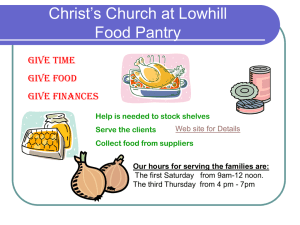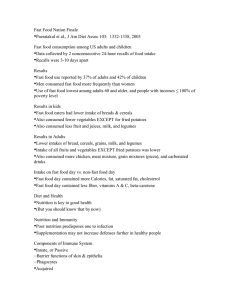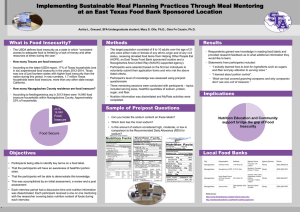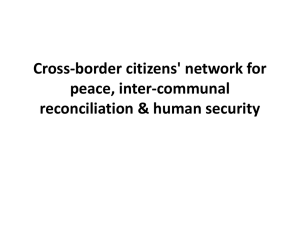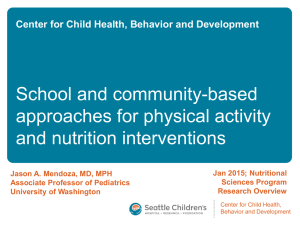Final Report - Student Leadership & Involvement
advertisement
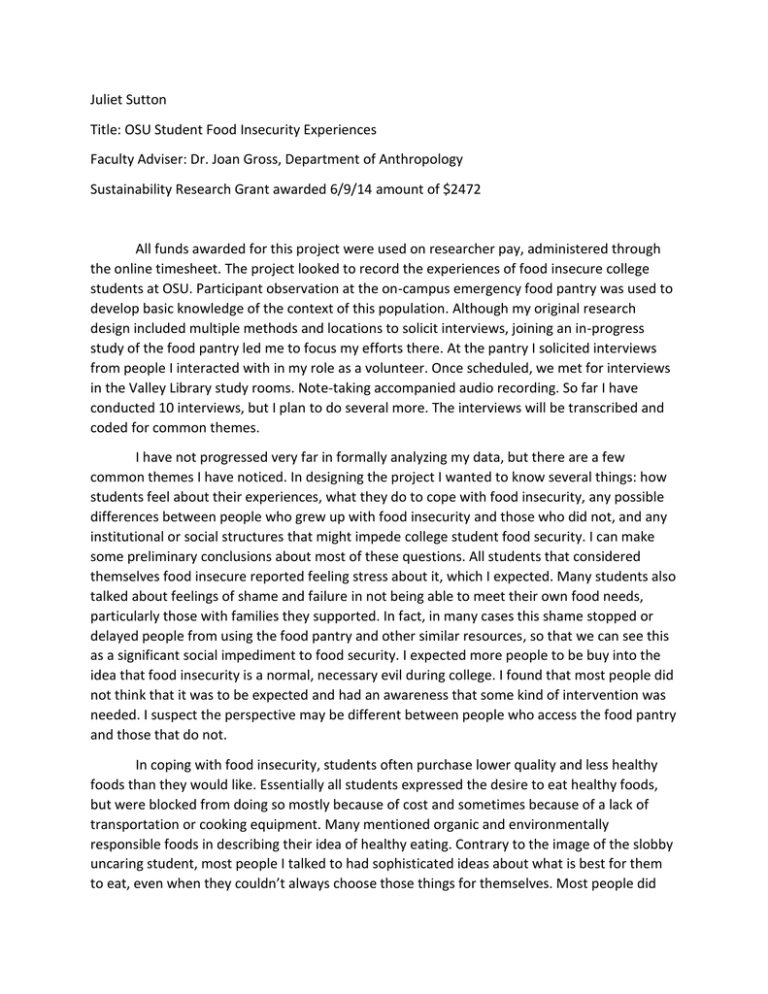
Juliet Sutton Title: OSU Student Food Insecurity Experiences Faculty Adviser: Dr. Joan Gross, Department of Anthropology Sustainability Research Grant awarded 6/9/14 amount of $2472 All funds awarded for this project were used on researcher pay, administered through the online timesheet. The project looked to record the experiences of food insecure college students at OSU. Participant observation at the on-campus emergency food pantry was used to develop basic knowledge of the context of this population. Although my original research design included multiple methods and locations to solicit interviews, joining an in-progress study of the food pantry led me to focus my efforts there. At the pantry I solicited interviews from people I interacted with in my role as a volunteer. Once scheduled, we met for interviews in the Valley Library study rooms. Note-taking accompanied audio recording. So far I have conducted 10 interviews, but I plan to do several more. The interviews will be transcribed and coded for common themes. I have not progressed very far in formally analyzing my data, but there are a few common themes I have noticed. In designing the project I wanted to know several things: how students feel about their experiences, what they do to cope with food insecurity, any possible differences between people who grew up with food insecurity and those who did not, and any institutional or social structures that might impede college student food security. I can make some preliminary conclusions about most of these questions. All students that considered themselves food insecure reported feeling stress about it, which I expected. Many students also talked about feelings of shame and failure in not being able to meet their own food needs, particularly those with families they supported. In fact, in many cases this shame stopped or delayed people from using the food pantry and other similar resources, so that we can see this as a significant social impediment to food security. I expected more people to be buy into the idea that food insecurity is a normal, necessary evil during college. I found that most people did not think that it was to be expected and had an awareness that some kind of intervention was needed. I suspect the perspective may be different between people who access the food pantry and those that do not. In coping with food insecurity, students often purchase lower quality and less healthy foods than they would like. Essentially all students expressed the desire to eat healthy foods, but were blocked from doing so mostly because of cost and sometimes because of a lack of transportation or cooking equipment. Many mentioned organic and environmentally responsible foods in describing their idea of healthy eating. Contrary to the image of the slobby uncaring student, most people I talked to had sophisticated ideas about what is best for them to eat, even when they couldn’t always choose those things for themselves. Most people did not use any other sources of free food or alternative food procurement such as gardening, which surprised me. There were no noticeable differences between people who grew up with food insecurity and those that did not. Shame, as mentioned above was the most noticeable social impediment to alleviating food insecurity. Institutional impediments that came up frequently were the difficulty for students to access government assistance, the inadequate salaries for graduate students, and specifically for students living in the dorms the cost and lack of cooking equipment on campus. In addition to their current excellent food education efforts, I recommend that the SSI continue to focus on increasing access and awareness of helpful resources for students, and advocating for socially and economically sustainable practices with the university. The SSI award helped me a lot in that the extra income allowed me to focus more fully on my research and other academic work instead of looking for other sources of income. My connection to the SSI has helped me to become more integrated and aware of programs and groups that are relevant to my work on campus. In particular my involvement with Hunger and Homelessness Week this fall, although not specifically connected to this award, was really great in spreading awareness of my work, networking, and practicing presenting my research. Thank you once again for awarding me this grant.
